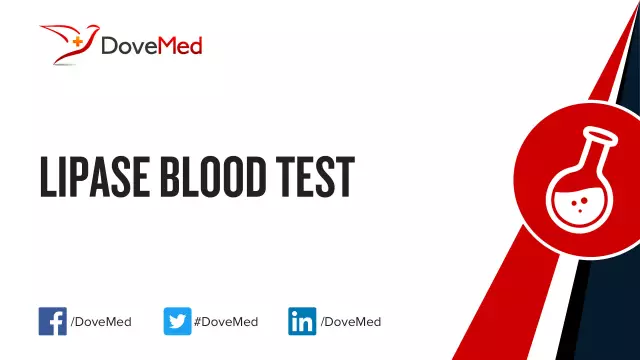- Author Rachel Wainwright wainwright@abchealthonline.com.
- Public 2023-12-15 07:39.
- Last modified 2025-11-02 20:14.
Lipase
Lipase is an enzyme whose main purpose is to dissolve, separate into fractions and digest fats in the human digestive tract.

Lipase is produced by the pancreas, lungs, liver, and intestines. There is also such a thing as lingual lipase - a substance that is produced in the mouth of newborn babies.
Each of these enzymes is responsible for the breakdown of a separate group of fats.
Another important function of lipase is participation in energy metabolism, the process of assimilation of vitamins A, D, E, K, polyunsaturated fatty acids.
Lipase rate
There are certain norms for the content of lipase in the blood.
Children under 17 years old should contain from 0 to 130 units of lipase in 1 ml of blood.
The permissible rate of lipase for adults, regardless of gender, is 0-190 units of the enzyme per 1 ml of blood.
Determine the level of lipase using a blood test. It is usually prescribed to patients with chronic or acute pancreatitis, liver cirrhosis, acute cholecystitis, diabetic ketoacidosis, chronic and acute renal failure, acute intestinal obstruction, gastric ulcer, as well as those who have undergone organ transplant surgery.
Lipase analysis is especially important for those who have pancreas damage. A blood test for lipase and another enzyme, amylase, in 98% gives an accurate result, and indicates a pancreatic disease.
How to prepare for a blood lipase test
Blood for analysis is taken from a vein, on an empty stomach. A person should not eat anything fatty, spicy and spicy 12 hours before blood sampling. Only in extreme cases, lipase analysis is performed without preparation, at any time of the day.
Today, two methods of blood testing for lipase content are used: immunochemical and enzymatic. The second one is used more often because the result can be obtained with its help faster.
What does an elevated lipase level say?
If lipase is elevated, doctors may suspect a person has the following diseases:
- biliary colic;
- acute pancreatitis or exacerbated chronic pancreatitis;
- neoplasms in the pancreas, incl. cysts or pseudocysts;
- metabolic disorders (obesity, gout, diabetes mellitus, etc.);
- heart attack or intestinal obstruction;
- perforation of the internal genital organs;
- peritonitis;
- intrahepatic cholestasis;
- perforated stomach ulcer;
- mumps - if it is accompanied by damage to the pancreas.
The fact that lipase is increased may also indicate that a person is taking Heparin, Indomethacin, narcotic analgesics, barbiturates.
Although it is not customary to do a blood test for lipase when physically injured, an increase in lipase levels can occur in people with long bone fractures and other serious injuries.

The level of pancreatic lipase is very important for the diagnosis of diseases, but it is difficult to make an accurate diagnosis only by such a blood test - on the first day of an exacerbation of pancreatitis, lipase increases moderately and only on the third day a serious enzyme activity can be detected. So, if the defeat of the pancreas is accompanied by the appearance of edema, the lipase level is within normal limits, if the patient has hemorrhagic pancreatic necrosis (one of the complications of acute pancreatitis), then the amount of lipase will exceed the norm by three or more times. And if a person has fatty pancreatic necrosis, then there will be no significant increase in lipase levels.
The prognosis of damage to the pancreas is considered unfavorable if the lipase level is increased by 10 or more times, and if in three days it does not decrease to three times the norm.
The increased lipase activity usually persists for 3-7 days from the onset of inflammation, and the lipase level begins to recover only after 7-14 days.
What does low lipase mean?
The fact that lipase is lowered may indicate the presence of cancer. An exception is pancreatic cancer.
In addition, lipase can be lowered in hereditary hyperlipidemia (elevated blood lipids), poor nutrition, in which fats predominate.
Lack of lipase may also indicate that pancreatitis has passed from acute to chronic form.
Found a mistake in the text? Select it and press Ctrl + Enter.






